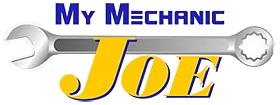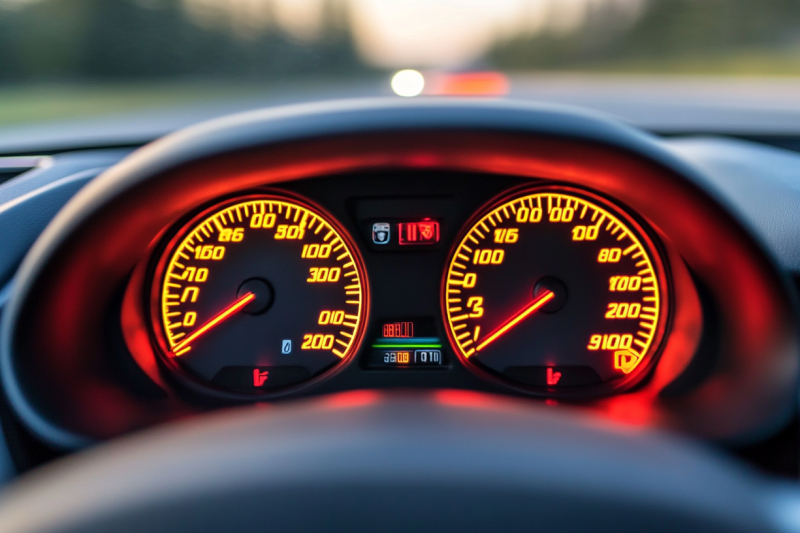How to Find Warning Signs Your Car Needs a Check-Up
Table of Contents
- 1 How to Find Warning Signs Your Car Needs a Check-Up
- 1.1 Unusual Noises From the Engine
- 1.2 Changes in Driving Performance
- 1.3 Warning Lights on the Dashboard
- 1.4 Unpleasant Smells or Smoke
- 1.5 What are the common warning signs that my car needs a check-up?
- 1.6 How can I recognize warning lights on my dashboard?
- 1.7 What does it mean if I experience vibrations while driving?
- 1.8 What should I do if my car stalls?
- 1.9 How can overheating affect my vehicle?
- 1.10 What are the signs of engine trouble?
Keeping an eye on your car’s health can save you a lot of trouble down the road. Regular check-ups are essential, but it’s also important to know when your car needs immediate attention. Recognizing warning signs early can prevent bigger problems and keep your car running smoothly. Whether you’re hearing strange noises or seeing warning lights, these signs shouldn’t be ignored.
Sometimes, your car gives subtle hints that something’s wrong. It could be a noise you haven’t heard before, a change in how the car feels when you drive, or a smell that seems off. These are all signals that your car needs a check-up. Knowing what to look for can make all the difference in maintaining your vehicle and avoiding costly repairs.
If you’re like most people, you rely on your car every day. That’s why understanding these warning signs is so important. By paying attention to your car’s behavior, you can catch small issues before they turn into major repairs. This guide will help you learn the most common signs that your car needs a check-up and what to do about them.
Unusual Noises From the Engine
Hearing strange noises from your engine can be worrying. Common concerning sounds include knocking, hissing, and squealing. A knocking sound often points to a problem with the engine’s internal components, such as the rods or pistons. Hissing could mean there’s a leak, possibly from the radiator or the engine vacuum. Squealing usually comes from the belts, which might be loose or worn out.
If you hear any of these noises, it’s important to pay attention. Knocking can lead to severe engine damage if ignored. A hissing sound might indicate a coolant leak, which can cause the engine to overheat. Squealing belts can snap, leaving you stranded. When you hear these sounds, it is best to seek professional help. Ignoring them can lead to bigger, more expensive problems.
Don’t wait for these noises to get worse. A professional mechanic can diagnose the issue and fix it before it becomes a major repair. Trust your instincts—you know your car better than anyone. If something sounds off, it probably is.
Changes in Driving Performance
Changes in how your car drives are another sign you need a check-up. Poor acceleration or handling is a big clue. If your car feels sluggish or takes longer than usual to speed up, there could be issues with the fuel system or engine. Trouble with handling, like pulling to one side, might point to alignment problems or tire issues.
Vibrations in the steering wheel should not be ignored. If you notice shaking when you drive, it could be a sign that something is wrong with the tires or suspension system. Even if the car seems to drive fine otherwise, vibrations are usually a sign that a part is wearing out or needs adjustment.
Pay attention to these changes. Slower acceleration, difficult handling, and steering wheel vibrations can all indicate bigger problems ahead. Getting your car checked out as soon as you notice these signs helps keep you safe and prevents costly repairs down the line.
Warning Lights on the Dashboard
Your car’s dashboard lights serve as an early warning system. Some of the most common lights include the check engine light, oil pressure light, and battery alert. The check engine light can indicate various problems, from a loose gas cap to more serious engine issues. The oil pressure light warns you that oil levels are low or that there’s a problem with the oil pump. The battery alert signals issues with your car’s electrical system.
Steps to take when a warning light appears are crucial. First, refer to your owner’s manual to understand what the light means. If it’s something minor, like a loose gas cap, you can fix it yourself. For more serious warnings, reduce driving speed and avoid heavy acceleration until you can get the car checked out. In cases where the light is flashing, it’s safest to stop driving and call for a professional to inspect your vehicle.
Ignoring dashboard lights can lead to significant damage and expensive repairs. They are there to prevent small problems from becoming big ones. By paying attention to these warnings and acting promptly, you keep your car running safely and efficiently.
Unpleasant Smells or Smoke
Unpleasant smells in your car can also be a warning sign. Some concerning odors include the smell of gasoline, burning rubber, or rotten eggs. A gasoline smell could mean a fuel leak, which is dangerous. The scent of burning rubber might indicate a slipping drive belt. Rotten egg smells usually come from the catalytic converter, signaling it isn’t working properly.
If you see smoke, immediate action is required. Blue smoke can mean there’s oil leaking into the engine. White smoke usually means that coolant is leaking, which can cause the engine to overheat. Black smoke may indicate the engine is burning too much fuel. When you notice smoke, pull over safely and turn off the engine. It is best to contact a professional to inspect the car as soon as possible.
Recognizing these smells and acting quickly can prevent serious problems. Your nose is one of the best tools for detecting early issues with your vehicle. Always remember that unusual smells should never be ignored.
Knowing the warning signs that your car needs a check-up can save you from major headaches and expenses. From unusual noises and changes in driving performance to dashboard lights and strange smells, these indicators help you keep your car in top shape. Regular check-ups and being attentive to these signs ensure your vehicle runs smoothly and safely.
Taking care of your car doesn’t have to be complicated. By paying attention to the signs and acting promptly, you prevent minor issues from turning into major problems. Keep your eyes, ears, and nose open to detect any changes in your vehicle’s behavior.
If your car shows any of these warning signs, let our expert mechanic at My Mechanic Joe in Woodstock, GA, take a look. Schedule a check-up today to keep your car running well and your mind at ease. Contact us now to book an appointment.
What are the common warning signs that my car needs a check-up?
There are several warning signs that indicate your car may need a check-up. These include unusual noises like grinding or squeaking, warning lights on the dashboard such as the check engine light, vibrations while driving, or a decrease in performance. If you notice any of these symptoms, it’s essential to pay attention and consider taking your vehicle to an auto repair shop for a thorough inspection.
How can I recognize warning lights on my dashboard?
Warning lights on your dashboard are designed to alert you to specific issues. For example, the check engine light indicates potential engine problems, while the brake warning light signifies issues with the brake system. Familiarizing yourself with your vehicle’s dashboard symbols can help you recognize when you need to take action and seek maintenance.
What does it mean if I experience vibrations while driving?
If you’re experiencing vibrations while driving, it could be a sign of various issues. This might indicate problems with your tires, such as uneven wear or imbalance, or it could be related to the suspension system. In some cases, vibrations can signal more serious engine problems or issues with other components. It’s advisable to have your vehicle checked by a professional if you notice these vibrations.
What should I do if my car stalls?
If your car stalls, it can be alarming and may indicate several possible issues, including fuel system problems, electrical issues, or a faulty spark plug. If this happens frequently, you should get your car checked immediately, as stalling can lead to dangerous situations on the road and may require urgent service.
How can overheating affect my vehicle?
Overheating is a critical issue that can cause severe damage to your engine. If you notice your vehicle’s temperature gauge rising or steam coming from under the hood, it’s important to pull over safely and turn off the engine. Overheating can be caused by low coolant levels, a damaged hose, or a failing radiator. Addressing overheating issues promptly can help prevent costly repairs down the line.
What are the signs of engine trouble?
Signs of engine trouble can include strange noises, decreased power, or a decrease in fuel

